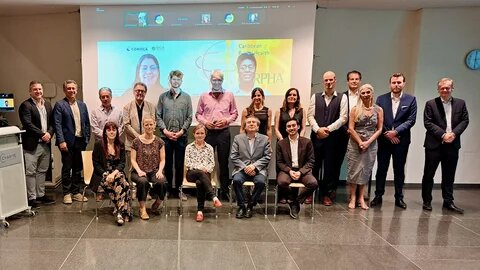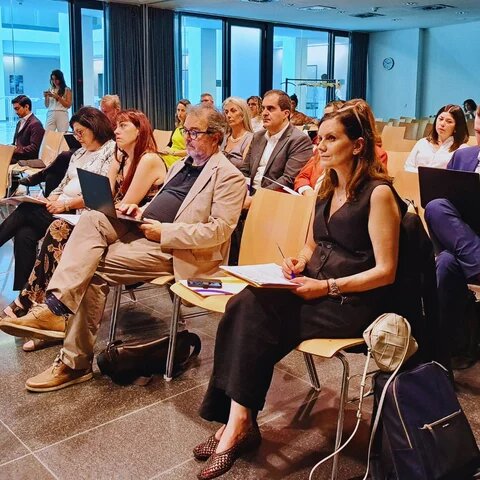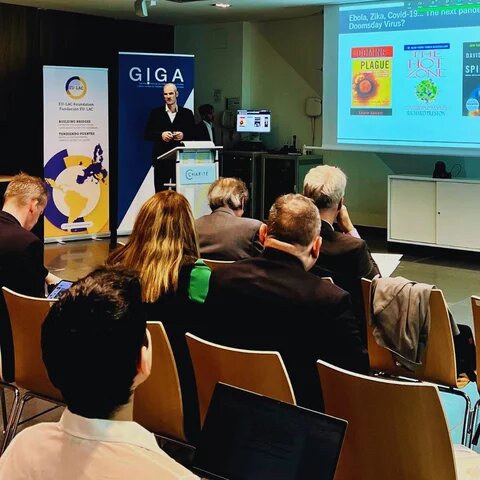

Co-organized by the EU-LAC Foundation and the German-Latin American Center for Research in Infectious Diseases and Epidemiology (GLACIER), with support from the German Federal Foreign Office and the GIGA Institute, this high-level dialogue brought together researchers from different disciplines, specialized organizations, government officials and interested members of the general public from Europe and Latin America and the Caribbean to learn from the experience of the pandemic and to discuss how to develop stronger and more reliable structures and mechanisms of cooperation to enable both regions to take more coordinated action, government officials and interested members of the general public from Europe and Latin America and the Caribbean to learn from the pandemic experience and discuss how to develop stronger and more reliable cooperation structures and mechanisms that will enable both regions to take more coordinated action to prepare for and respond to current and future health challenges.
The event was structured around several panels. The first of these focused on the heterogeneity of responses to the COVIC-19 pandemic in both regions. As Latin America and the Caribbean suffered high infection and mortality rates in the early stages of the pandemic, vaccine development, availability and distribution became a key sticking point between the two regions.

The second panel focused explicitly on the issue of cooperation and coordination, which we have seen diminish even among neighboring countries during the pandemic. Contacts in established networks became increasingly rare; trust and established forms of cooperation declined.
In the third panel, invited experts discussed the ever-important issue of financial resources, an essential ingredient for facilitating the delivery of health services as a public good and strengthening the work of research consortia, collaborative initiatives and health partnerships. While some proposals for change may require nothing more than goodwill and initiative, others are fundamentally dependent on funding.
This concluded with a Round Table, where participants pooled perspectives and sought to draw conclusions that could be used in the construction of networks and shared resources in the area of health, with a bi-regional perspective.